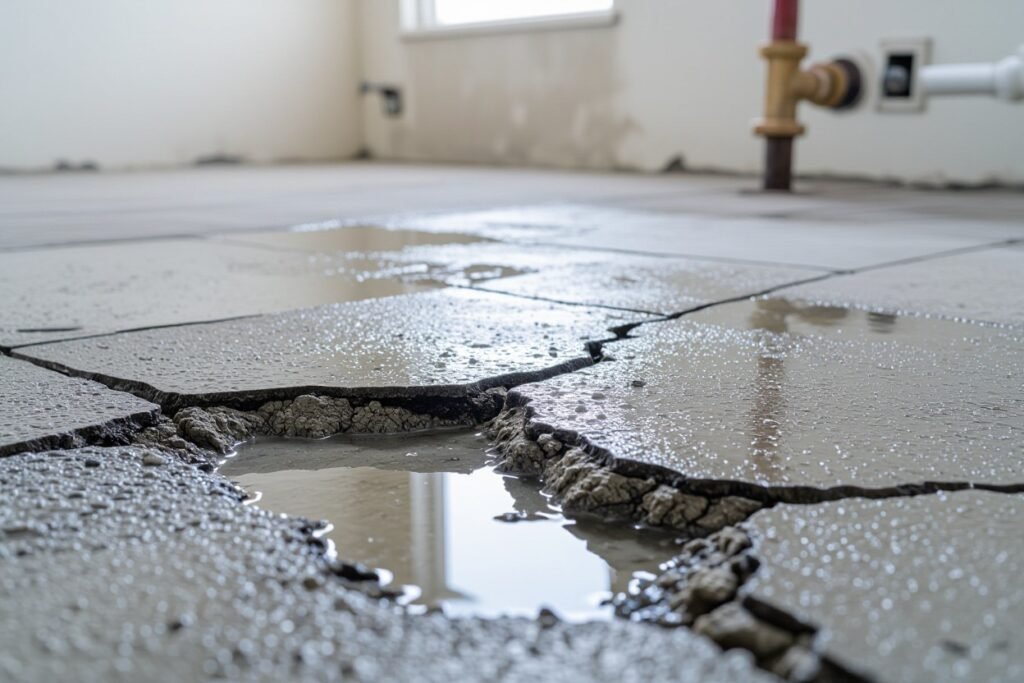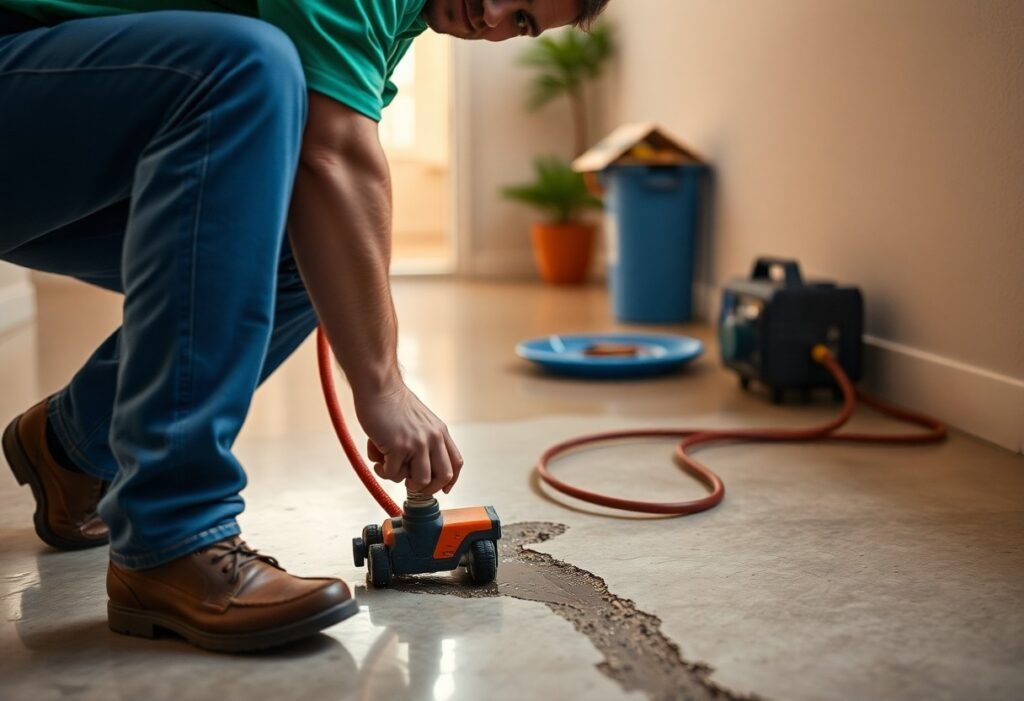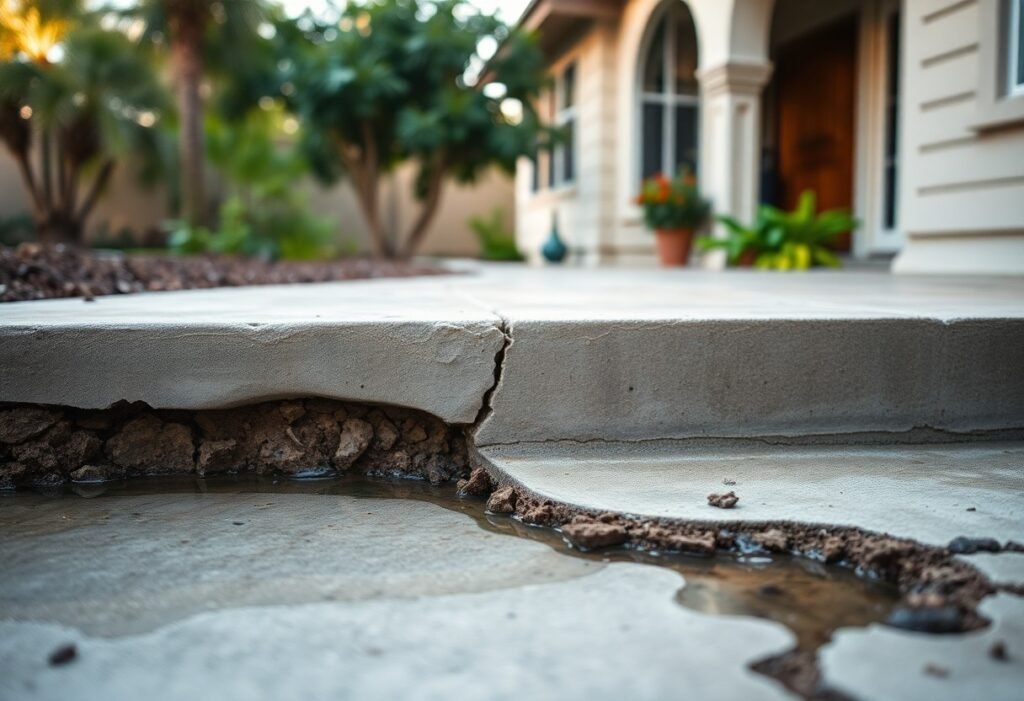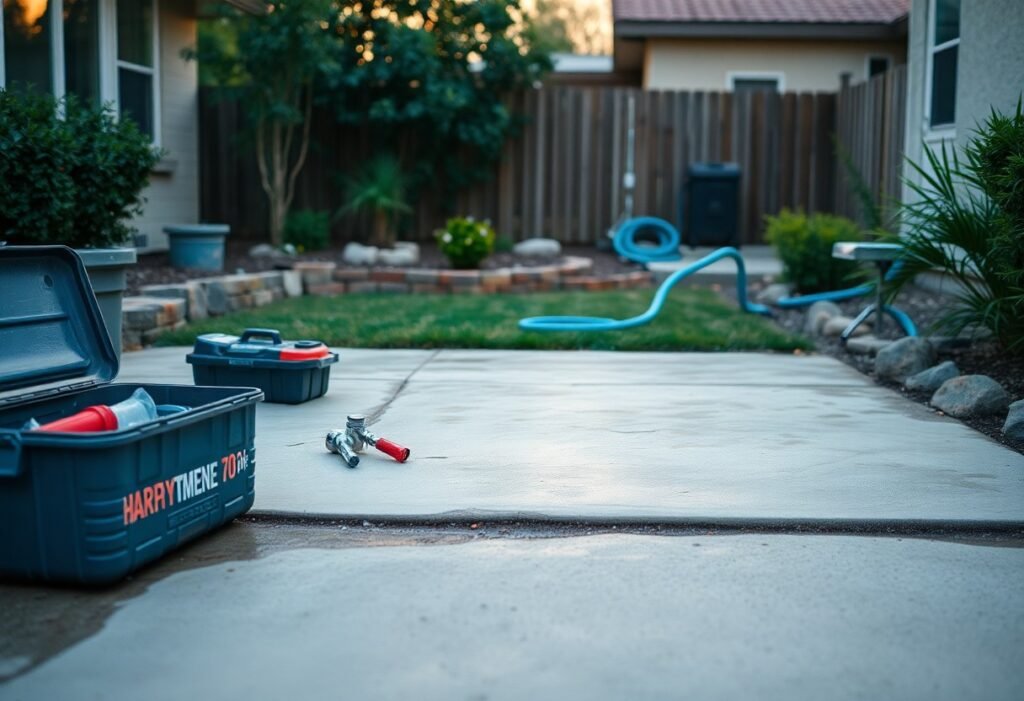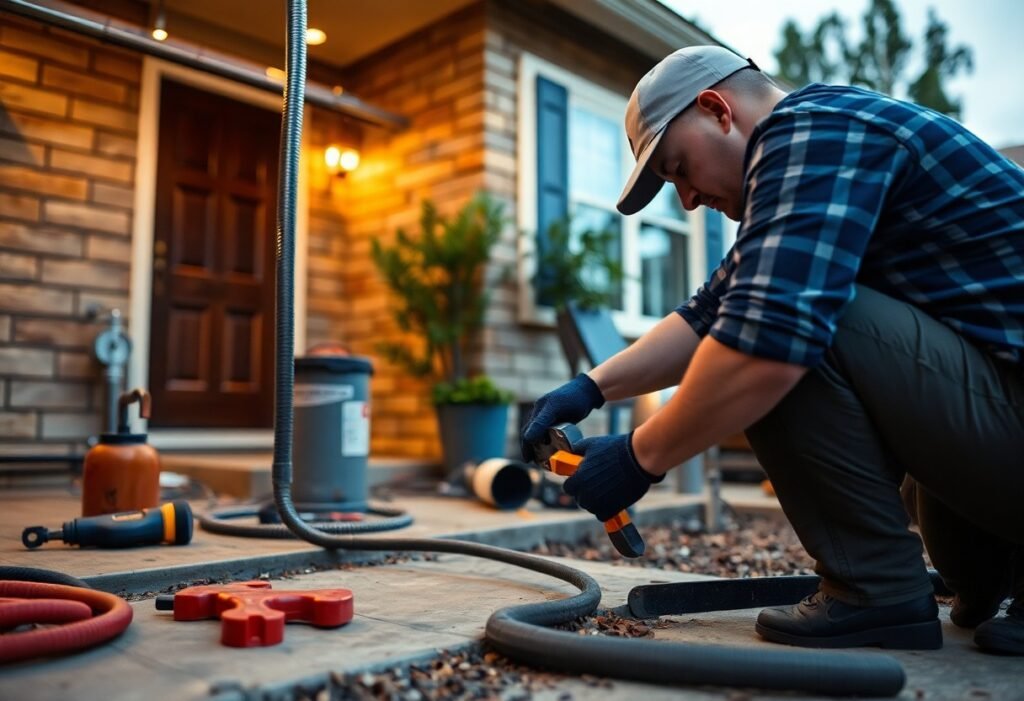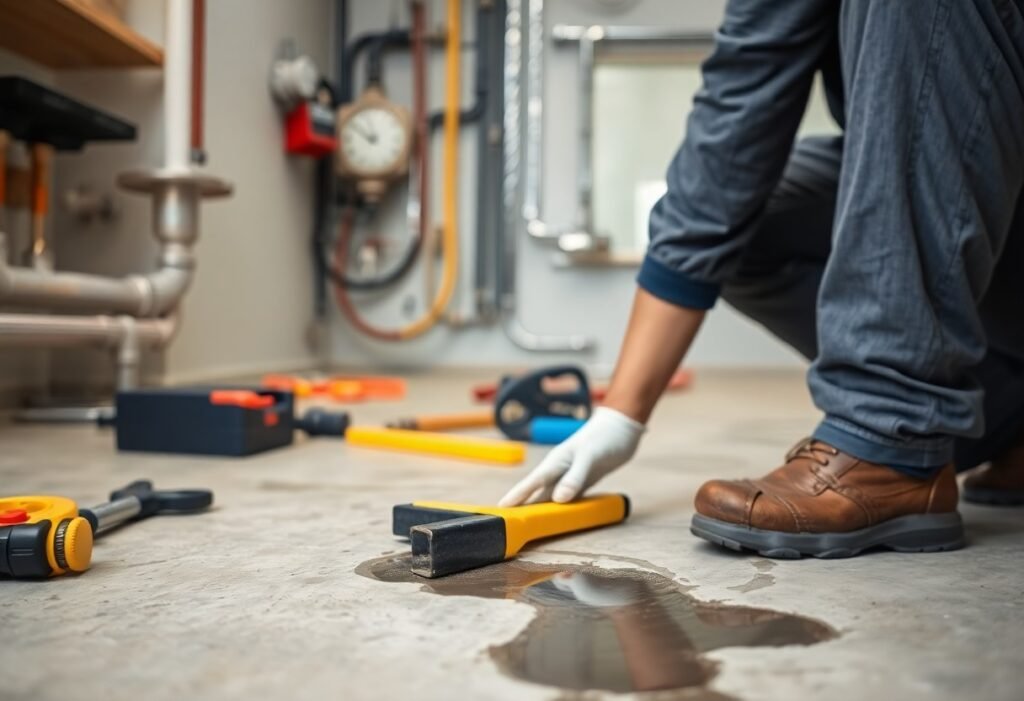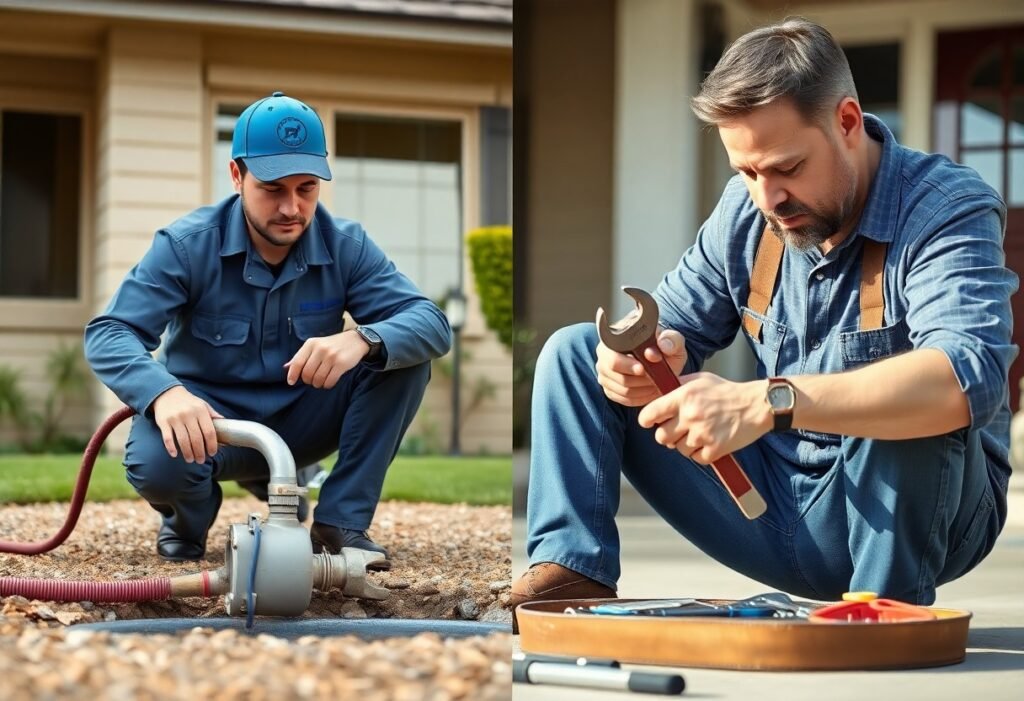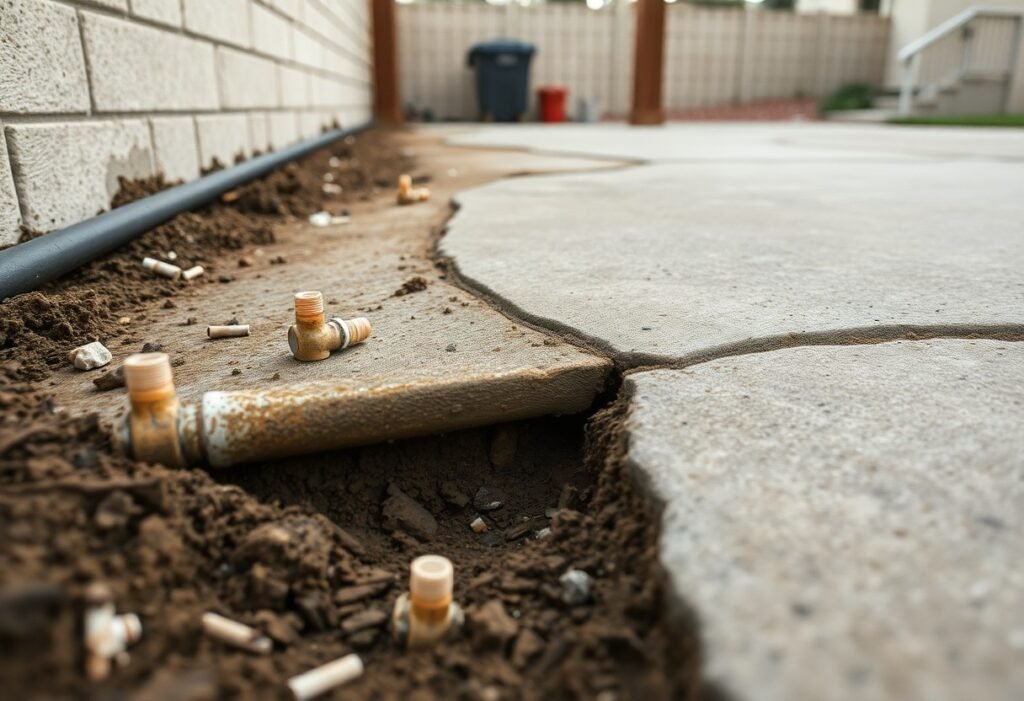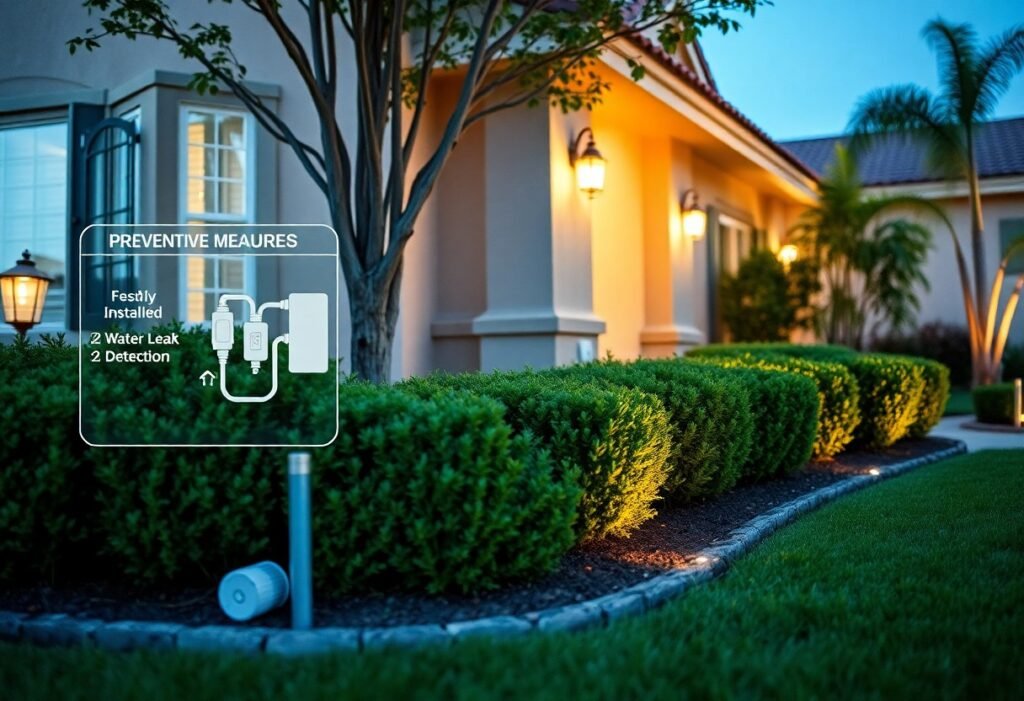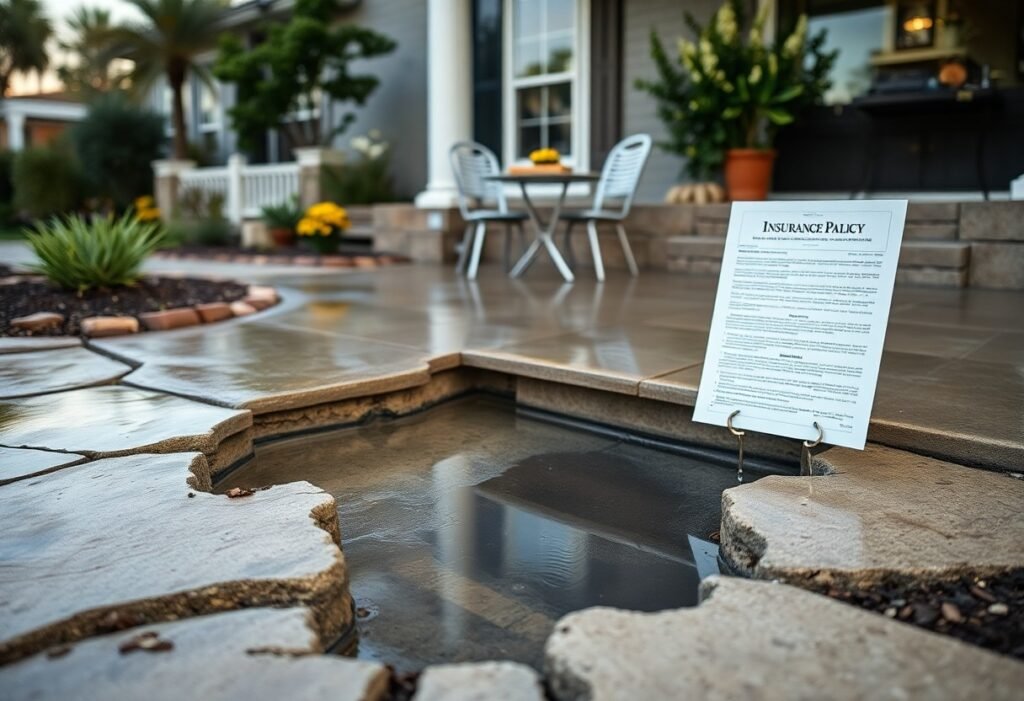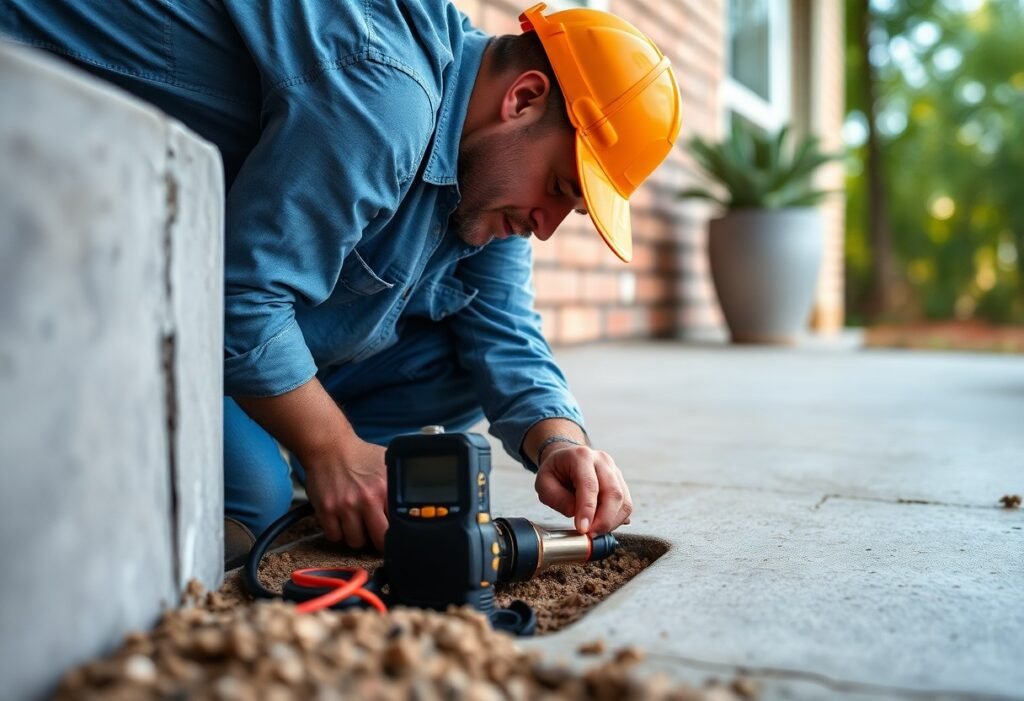Slab Leak Damage? Here’s What Brea, California Residents Need to Know
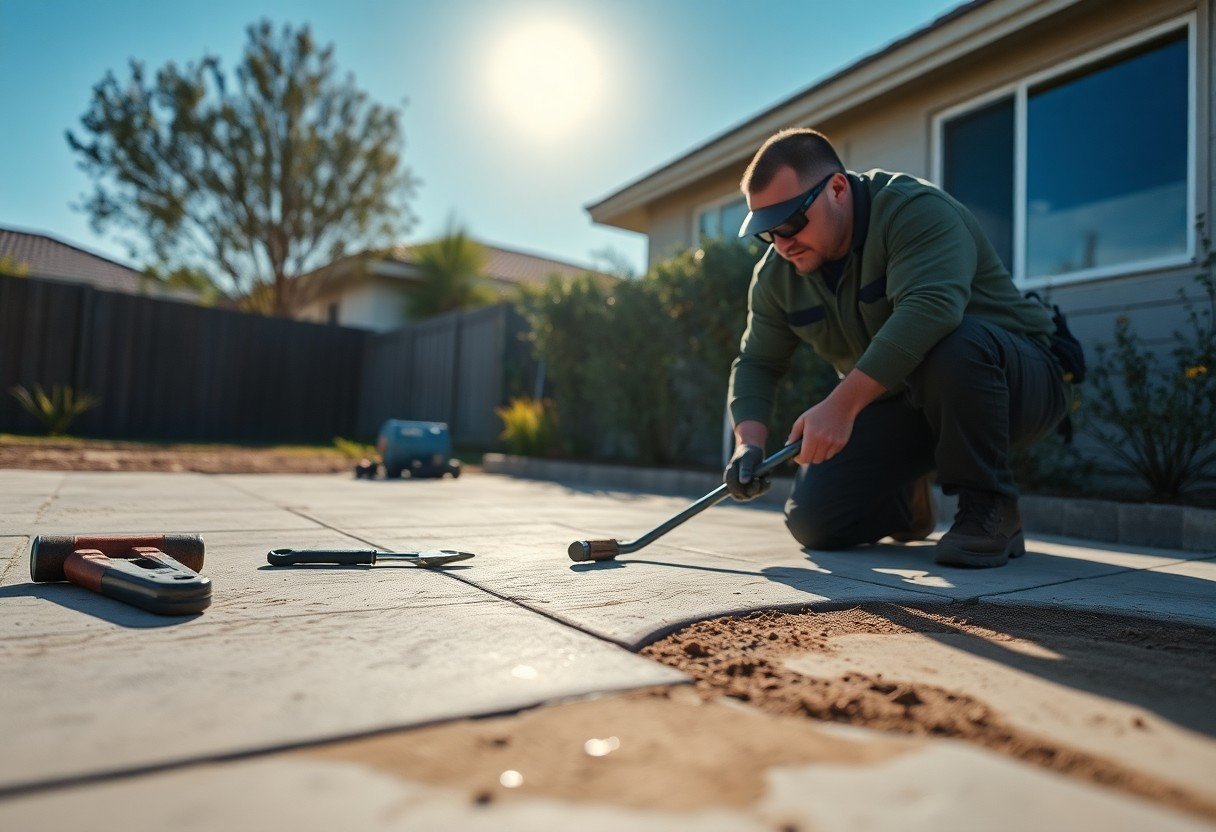
Just when you think your home is safe, a slab leak can wreak havoc on your property. If you live in Brea, California, understanding what a slab leak is and how it can affect your foundation and plumbing is vital. This type of leak can lead to significant water damage, mold growth, and even costly repairs if not addressed promptly. In this post, you’ll find imperative information to help you detect the signs of a slab leak and what steps you should take to protect your home.
Key Takeaways:
- Residents should be aware of the signs of a slab leak, such as unexplained increases in water bills, damp spots on floors, or the sound of running water when fixtures are off.
- Prompt detection and repair of slab leaks are necessary to prevent significant structural damage and costly repairs in the long run.
- Homeowners in Brea, California, are encouraged to consult with professionals who specialize in slab leak detection and repair to ensure proper handling of the situation.
Unmasking the Causes of Slab Leaks
Understanding the root causes of slab leaks is important for effective prevention and damage mitigation. Various factors contribute to the breakdown of your home’s plumbing system, often leading to leaks beneath the foundation. By recognizing these causes, you can take proactive measures to protect your property from costly repairs and extensive damage.
The Role of Soil Movement and Settling
Soil movement and settling are significant contributors to slab leaks. Over time, shifts in the ground due to moisture fluctuations or soil erosion can exert pressure on pipes, resulting in cracks or ruptures. In areas like Brea, where clay soil predominates, this issue can escalate, especially after heavy rainfall, prompting you to consider regular assessments of your property’s foundation.
Water Pressure and Pipe Deterioration
Excessive water pressure can lead to deterioration of your plumbing pipes, creating a higher risk for slab leaks. When the water pressure exceeds the pipes’ capacity, it can wear them down faster, leading to small leaks that can turn into major problems over time. Household systems typically operate between 40 to 60 psi, and anything significantly above this range can be detrimental.
It’s not unusual for homes over ten years old to experience signs of pipe deterioration due to aging materials and mineral buildup. Copper pipes, while durable, can still fail under relentless water pressure, while polybutylene pipes are particularly notorious for developing leaks. If you notice fluctuations in water pressure, inspecting your plumbing system becomes important to avert potential slab leaks before they escalate.
Identifying the Symptoms of Slab Leak Damage
Spotting slab leak damage early can save you from extensive repairs and costly water bills. Look for symptoms such as damp or warm spots on your floor, a noticeable increase in water bills, or visible mold growth. Your home’s foundation may also develop cracks as the soil beneath shifts due to excess moisture. Each of these signs can indicate a slab leak, making it important to pay attention to even small changes around your property.
Physical Indicators in Your Home
Pay close attention to your home’s physical environment. You might notice damp patches on your flooring, particularly in areas that are not commonly wet, or even warm areas on the floor that suggest warm water is leaking from supply lines. Additionally, walls and baseboards may show signs of discoloration or peeling paint, indicating that water is seeping through your home’s structure.
The Impact on Water Bills and Utility Readings
An unexplained surge in your water bill is often one of the first red flags of a slab leak. If you receive your utility statement and notice a jump of more than 10% compared to previous months, that could signal a hidden leak beneath your foundation. Regularly monitoring your water meter can help pinpoint unusual usage that does not align with your daily consumption patterns.
For instance, a sudden increase in your water consumption, while your household habits remain the same, may indicate a significant leak that should be addressed immediately. It can be helpful to compare your recent bills over several months; a consistent upward trend should raise concerns. In addition to damaging your home, a slab leak can significantly inflate your water expenses, draining your finances and adding unnecessary stress.
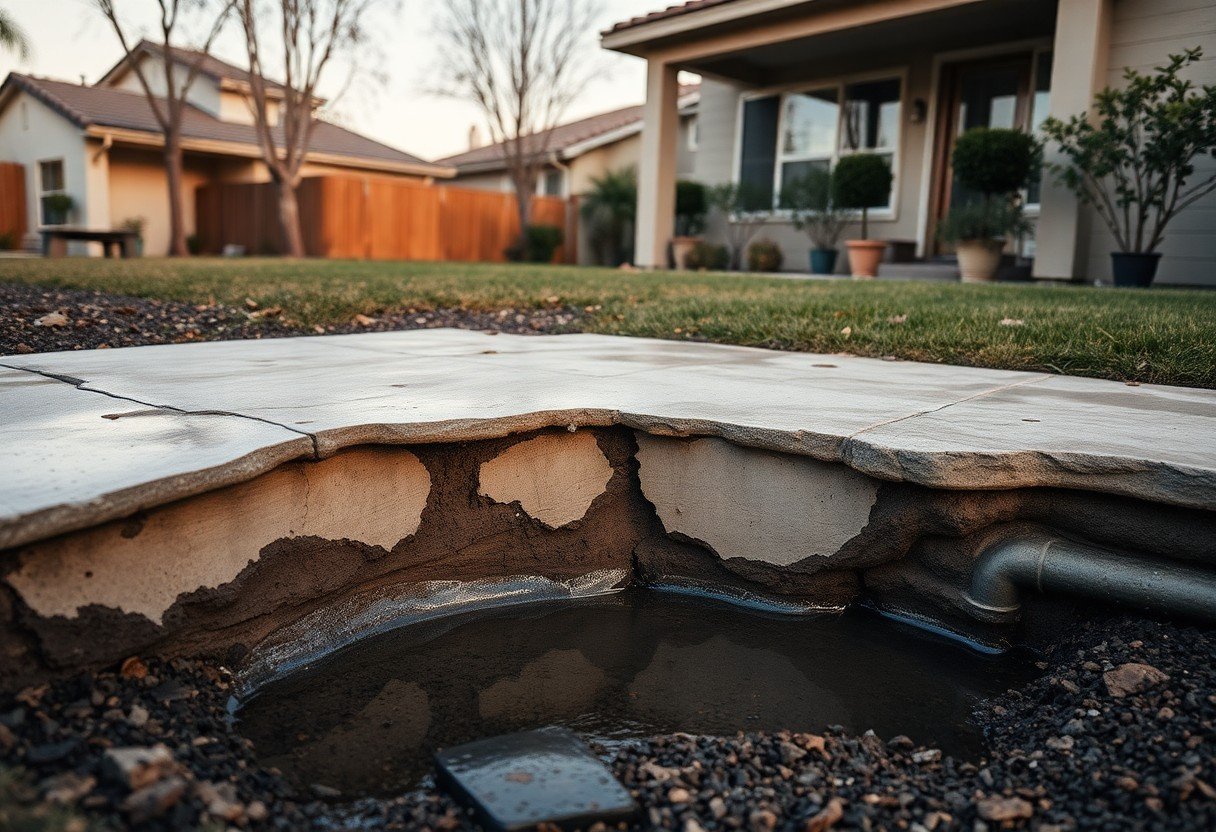
Assessing the Financial Consequences
Addressing slab leak damage involves a closer look at the financial implications that accompany repairs and potential long-term effects. You might find that costs can escalate quickly if issues are not tackled promptly, leading to significant damage. From immediate repair expenses to potential dips in your property’s value, understanding the financial landscape helps in planning and mitigating unforeseen expenses.
Repair Costs That Can Surprise Homeowners
Many homeowners underestimate the repair costs associated with slab leaks. Basic repairs can range from $500 to over $4,000, depending on the leak’s severity and location. Additional costs may stem from related work, including drywall replacement or flooring repairs. Often, you may find yourself facing unexpected expenses that could catch you off guard if you’re unprepared.
Long-Term Structural Implications
Ignoring slab leaks can lead to serious long-term structural damage in your home. Continuous exposure to water can weaken foundations, leading to settling or even collapse. If left unresolved for extended periods, you might also face damage to the surrounding electrical wiring and plumbing, which complicates repairs and drives up costs significantly.
For instance, prolonged water exposure can lead to mold and mildew growth, possibly introducing health risks for your family. The structural integrity of your foundation is paramount, and when water seeps into the materials, it can cause them to degrade over time. Addressing these leaks swiftly not only preserves your home’s value but also safeguards your well-being.
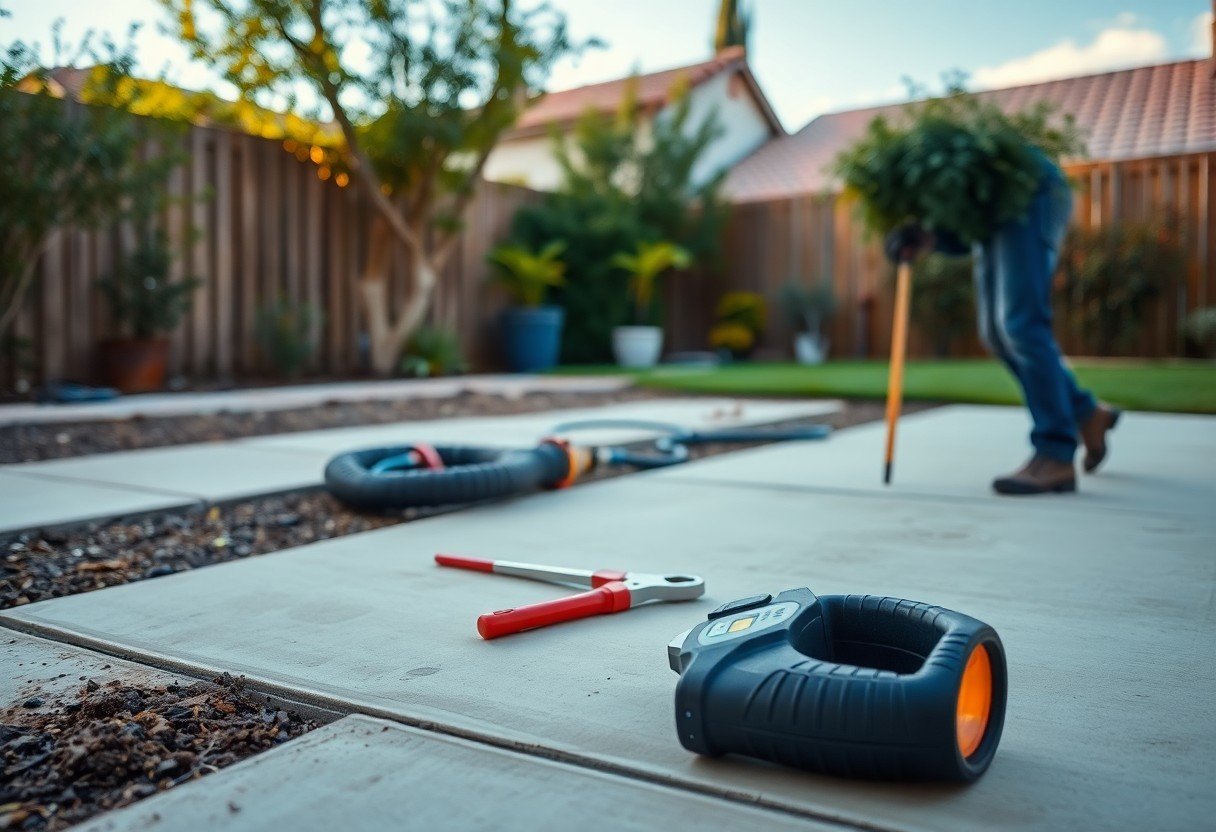
Essential Prevention Strategies for Brea Residents
To effectively safeguard your home from slab leaks, employing necessary prevention strategies is key. Start by enhancing your education on Slab Leak Detection and Repair – Brea, California techniques, and implement preventive measures to maintain your property’s integrity.
Routine Maintenance and Inspections
Conduct regular inspections of your home’s plumbing and foundation. Look for visible signs of leaks, cracks, or water pooling around your slab. Schedule annual professional evaluations to identify potential issues before they escalate. This proactive approach minimizes risk and protects your investment.
Landscaping Tips to Protect Your Foundation
Carefully selecting and placing plants can significantly influence your foundation’s health. Use drought-resistant plants to minimize moisture around the slab, and avoid planting large trees too close to your home as their roots can disrupt the foundation. Keep soil levels around the foundation consistent and graded to direct water away from your home.
- Opt for drought-resistant plants around your home.
- Avoid placing large trees near your home.
- Ensure a proper drainage system directs water away.
After incorporating these landscaping strategies, you can further shield your foundation from potential slab leaks.
In the context of soil moisture levels, regularly assess and maintain them to avoid excessive fluctuation. Implementing mulch around plants can help manage moisture levels efficiently. It’s also beneficial to install a drainage system if your yard retains water after heavy rains, preventing saturation that could lead to damage.
- Check and maintain soil moisture levels.
- Utilize mulch to manage moisture effectively.
- Consider installing a drainage system for excess water.
After ensuring moisture balance through these measures, you’ll significantly reduce your risk of slab leak damage.
The Importance of Professional Help
Slab leaks can lead to extensive damage if not addressed swiftly by professionals. In Brea, California, seeking expert assistance ensures not only proper identification of the leak but also effective repair methods that prevent future issues. Attempting DIY repairs can worsen the problem, leading to higher costs. For guidance on What to Do When you Have a Slab Leak in Orange County, relying on experienced plumbers is a wise decision for safeguarding your home.
Choosing the Right Plumber for Slab Leak Repairs
Selecting a qualified plumber can make a significant difference in resolving slab leak issues efficiently. Look for professionals with specific experience in slab leak detection and repair, certified licenses, and positive customer reviews. Understanding their methods and previous case successes can provide assurance that your problem will be accurately diagnosed and effectively dealt with.
Questions to Ask Before Hiring Contractors
When evaluating potential contractors for slab leak repairs, asking the right questions is key. Inquire about their experience, the techniques they use for locating leaks, warranty services, and whether they have experience working with similar homes in your area. Ensuring they have robust insurance coverage also protects you from potential liabilities during the repair process.
Engaging contractors with credible referrals and clear communication is pivotal for a seamless repair experience. Ask them about the steps they will take, the materials they plan to use, and how long the repair will take. Knowing their plan provides you with confidence in their capabilities while also helping avoid surprises during the repair work. Additionally, inquire about the expected costs and any hidden fees to ensure transparency throughout the process.
Summing up
So, if you suspect a slab leak in your Brea home, it’s necessary to act swiftly to minimize damage and protect your property. Familiarize yourself with the signs of a slab leak, such as damp spots or increased water bills, and consult with professional plumbers for a thorough inspection. By understanding the potential impacts of slab leak damage, you can take proactive steps to ensure your home remains safe and sound, safeguarding your investment for the future.
FAQ
Q: What is a slab leak and how can it affect my home in Brea, California?
A: A slab leak refers to a leak that occurs in the water lines located beneath the concrete foundation of your home. In Brea, California, where the climate can vary, slab leaks can lead to significant water damage if not addressed promptly. They often result in water pooling on the floor or near the foundation, which may cause cracks in the concrete, mold growth, and damage to your flooring and walls. If you suspect a slab leak, it’s important to seek professional plumbing services to assess and repair the issue to prevent further damage.
Q: What are the signs of a slab leak that Brea residents should look out for?
A: Residents in Brea should be vigilant for several signs that may indicate the presence of a slab leak. Common indicators include unexplained increases in water bills, the sound of running water when no fixtures are in use, wet or damp spots on floors, and the presence of mold or mildew. Additionally, you may notice warm spots on the floor caused by hot water leaks. If you observe any of these signs, it’s advisable to consult a plumbing professional to conduct a thorough inspection.
Q: What steps should I take if I suspect a slab leak in my Brea home?
A: If you suspect a slab leak in your home, the first step is to shut off the main water supply to prevent additional water damage. Next, note any signs such as dampness or unusual sounds. Contact a licensed plumber who specializes in slab leak detection and repair to assess the situation. They may use advanced equipment like acoustic listening devices or infrared cameras to pinpoint the leak’s location without invasive measures. Acting quickly can help minimize any damage and prevent costly repairs in the future.

